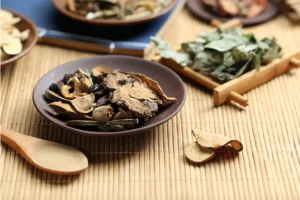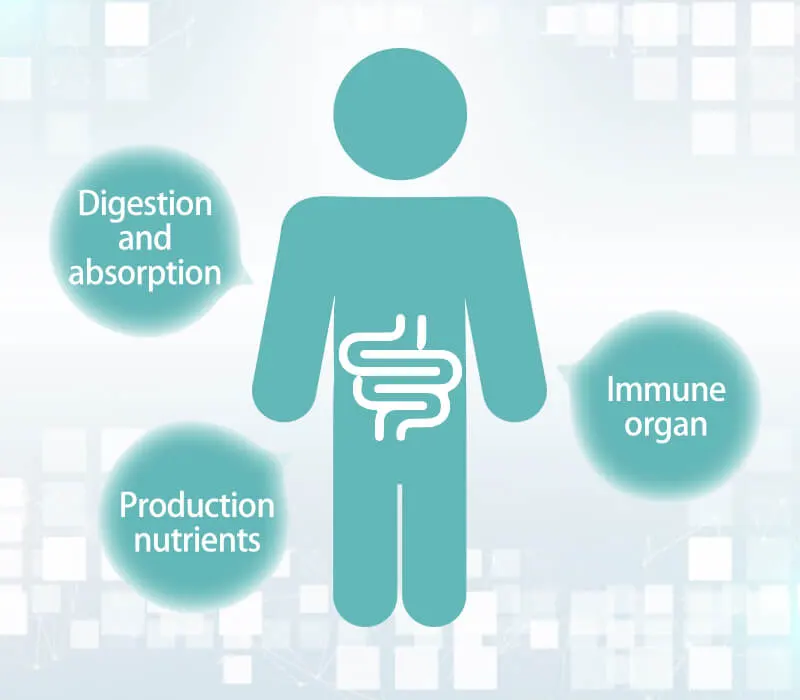
Types of Chinese Medicine
The herbs in Chinese medicine are of natural origin and were known in ancient times as “materia medica”. The herbs are “concocted” and refined into
Sheng-Pu has carefully selected health products perfect for winter, helping you replenish Yin and preserve vitality in preparation for spring.

The stomach and intestines are important organs in the body for the digestion and absorption of food, and they are closely related to the liver, the common elements are the vital digestive system of the human body. The stomach is located in the upper part of the abdominal cavity. The stomach is located in the upper part of the abdominal cavity, connected to the esophagus at the top and to the small intestine at the bottom. The main physiological function of the stomach is to accept food and digest, and its physiological characteristic is to secrete gastric acid and digestive juices to digest food.
The Stomach and the Spleen both reside in the Middle Burner and belong to the Earth in the Five Elements. In Chinese medicine, it is believed that the stomach is the main digestive organ of the body, while the spleen is the main absorption organ. The liver promotes the digestive and absorption functions of the spleen and stomach by coordinating the movement of qi in the spleen and stomach, and the secretion and excretion of bile. and realized.
The intestine is divided into the small intestine and the large intestine. The main physiological function of the small intestine is to receive food digested by the stomach, nutrients to be absorbed, and food residues to be sent to the large intestine. The normal physiological function of the small intestine is to absorb water and food residues and send them to the large intestine in the form of urine and faeces. The colon, including the colon and rectum, is the most important site of the body’s micro-ecological system, in addition to the absorption of water from food residues, the formation of faecal matter, and the formation of aqueous humour. It is also the synthesis site of many important nutrients.
Modern medicine has also proven that the stomach and intestines are the body’s main organs of digestion and absorption. For all kinds of life activities, growth, development and repair of various injuries, the body must constantly take in oxygen and nutrients from the external environment. Sufficient nutrients to synthesize or repair their own tissue and supply energy. Nutrients include proteins, fats, sugars, vitamins, inorganic salts and water. Apart from inorganic salts, water and most vitamins, which can be directly absorbed by the body, large organic molecules such as proteins, fats and sugars must be It is digested in the digestive tract and broken down into simple small molecules, which are then absorbed into the blood circulation through the digestive tract lining.

In addition to digestion and absorption, the gastrointestinal tract also secretes a number of gastrointestinal hormones, which have important endocrine functions. The intestine is also the body’s largest nutrient production center, many important nutrients and immune factors, are synthesized in the intestine.
In addition, recent studies have shown that the gastrointestinal tract is one of the most important immune organs in the human body. 70% of the body’s immune cells are found in the gastrointestinal tract, and the stomach is the largest vaccine manufacturing plant in the human body, where microorganisms or other antigens in food can be processed by the stomach to produce vaccine-like protection.
Humans and other animals are symbiotic with microorganisms, and humans, animals and plants cannot survive without microorganisms. The microflora in the intestinal tract accounts for 78.68% of the total microorganisms in the human body, and one-third to two-fifth of the stool is microorganisms. The total amount of microorganisms is equivalent to the size of a liver, but the amount produced far exceeds the amount produced by the liver.
According to the latest research, 90% of human diseases are caused by a decrease in probiotics. Therefore, when probiotics are dominant, they can play an important physiological function in maintaining human health, and when the probiotics are hungry, sick and less. Naturally, the body became ill with it.



The herbs in Chinese medicine are of natural origin and were known in ancient times as “materia medica”. The herbs are “concocted” and refined into

The epidemic alert, everyone at home, there is a long time no exercise, poor blood circulation, and muscle stiffness, often hands and feet numb, and

When experiencing blood in the stool and anal fissures, one should not take it lightly, as it may already be a sign of hemorrhoids! Modern